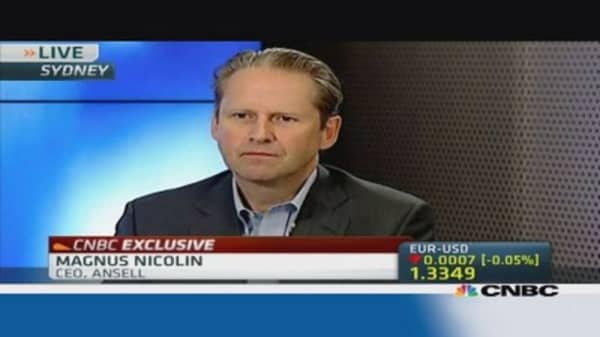Even as markets began to wobble in May after the Federal Reserve first broached the idea it might soon begin tapering its bond-buying, U.S. companies operating in Southeast Asia were broadly optimistic about the region, with plans to increase their investments, according to a new survey by the American Chamber of Commerce in Singapore and the U.S. Chamber of Commerce.
According to the poll of 475 senior executives, 79 percent expect their companies' trade and investment in the Association of Southeast Asian Nations (Asean) to rise over the next two years and 91 percent expect a rise over the next five, while 66 percent expect their profits from the region to rise this year and 84 percent expect a rise in 2014.
And the country viewed as the most attractive for new business expansion? Indonesia, among the hardest hit by the market convulsions over the past week.
(Read more: First India, then Indonesia... who is next?)
While AmCham's data were collected in June, "these respondents are business heads making long-term plans and commitments. They understand that markets can be volatile in the short term," Michael Zink, Citigroup's chief for Asean and a member of AmCham Singapore's board of governors, said in an email.
According to Alvin Liew, senior economist at UOB, the markets aren't reflecting the true state of economies in the region.




